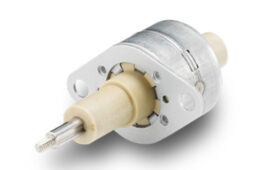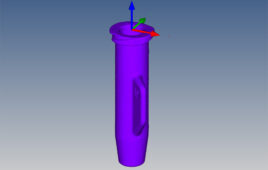When outsourcing medical device laboratory testing, knowing what the regulatory and business requirements are up front is critical to the success of your testing program.
Amy A. Schade, Felice Randi LaMadeleine and J. Heléne Andersson, Toxikon
Requests such as unusual application of technical or regulatory guidelines, shortened timelines, nonstandard study designs and custom reports are common reasons why medical device testing does not go as planned.
The sponsor can help minimize risk of deviations and delays by avoiding such requests and by fostering a collaborative relationship with the contract research organization (CRO) through open communication.
(Network with Toxikon experts at DeviceTalks West, Dec. 11–12 in Orange County, Calif.)
Here are five basic steps to apply to your outsourced testing programs:
1. Selecting the vendor
To ensure that you select the right CRO, perform a thorough vendor audit before placing work. Schedule a visit to discuss capabilities, meet critical staff, understand their quality systems and get comfortable with the new relationship. Ask to tour the facilities and review the CRO’s standard operating procedures in order to ensure their processes meet your requirements. Request copies of certifications and regulatory inspection history to support compliant testing.
2. Setting expectations
Once you’ve selected a vendor, collaborate to set expectations. Be clear before starting work about items such as expectations for timelines, report style, data sharing and frequency of communication between sponsor and CRO. Request sample reports ahead of time to have visibility to report content and data interpretation expectations. If you have specific requirements for report formatting, analysis or other content, it should be communicated up front to avoid delays.
3. Sharing information
Share as much information as possible with the CRO, particularly when it comes to the characteristics of your test materials, all communication you have with regulatory agencies, the intended use of the data (e.g. are you submitting to a regulatory body?), and reports and information from any previous studies performed. Inform your CRO as soon as possible when there are any changes, particularly in regulatory timelines.
4. Fulfilling your own responsibilities
Doing your part is an important element of ensuring success. The personnel who interact with the CRO should be trained in appropriate technical procedures and regulations. When information is requested by the CRO, be prompt and thorough in your replies. Provide information, materials and documentation quickly and as agreed. Make sure to review all documents thoroughly and ask for clarification if there are any concerns, before signing.
5. Listening to the experts you hired
When hiring a CRO, take advantage of their expertise and experience. Allow the CRO to use their standard procedures as much as possible, as they have been developed to meet technical and regulatory requirements as well as industry standards. If you require a CRO to use customized processes, the likelihood of deviations and delays may increase.
In closing, the single most important thing you can do is to communicate well. Consider the CRO’s suggestions and recommendations carefully. Provide complete information promptly when requested. Be clear with expectations of quality, access and deadlines. Good communication on both sides of the partnership will help to ensure the success of your outsourced testing.
Amy A. Schade (RQAP-GLP) is director of corporate compliance, and Felice Randi LaMadeleine (RQAP-GLP) and J. Heléne Andersson (RQAP-GLP) are quality assurance managers at Toxikon (Bedford, Mass.).





